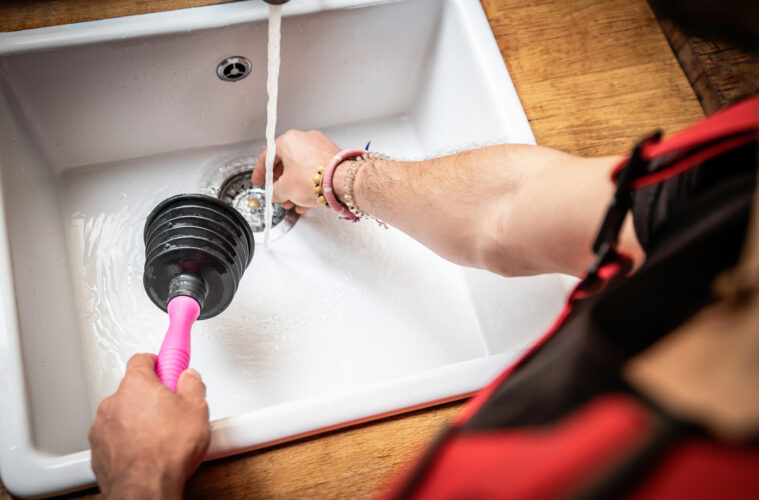Slow-draining pipes can be both frustrating and disruptive to your daily routine, so it’s crucial to find the most suitable solution quickly and efficiently. With several options available, each with its pros and cons, you should carefully consider which approach best fits your specific needs.
This may mean thinking about your budget, environmental concerns when using chemicals, clog severity, whether the system has collapsed, and preference for professional or DIY methods.
This guide offers insight into the multiple alternatives for dealing with slow-draining pipes, providing you with the knowledge needed to maintain a functional plumbing system.
6 Options for Tackling Slow-Draining Pipes
Whether you’re having drain issues at home or at your business, there’s more than one way to clear your pipes. Here are 6 great options for tackling slow-draining, greasy, or clogged pipes.
Plunging With a Plunger
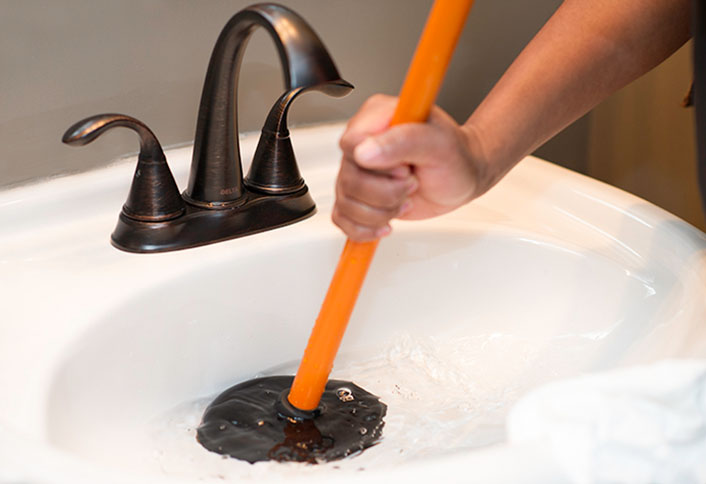
source: pinterest.com
Plunging is a tried and true method for dealing with slow-draining pipes in your home. This approach involves employing a simple household tool called a plunger to create pressure that pushes through the obstruction, effectively dislodging and removing it from the pipe.
Plungers are incredibly user-friendly, cost-effective, and can handle most minor clogs without issue. However, they may not be your best option for more challenging blockages or those located deeper within your plumbing system. Still, it’s always good to have a plunger handy.
Hydro Jetting
Hydro jetting is an advanced method of cleaning greasy and heavily clogged pipes in homes and restaurants. By using high-pressure water jets to obliterate obstructions, hydro jetting proves highly effective in clearing blockages without inflicting damage on your plumbing system.
This technique is employed by professional drain cleaning services like New Jersey’s top jetting service provider Atlantic Sitton Services. Though jetting may be more expensive compared to other DIY methods, it’s a reliable option when dealing with persistent drainage issues.
Chemical Drain Cleaners
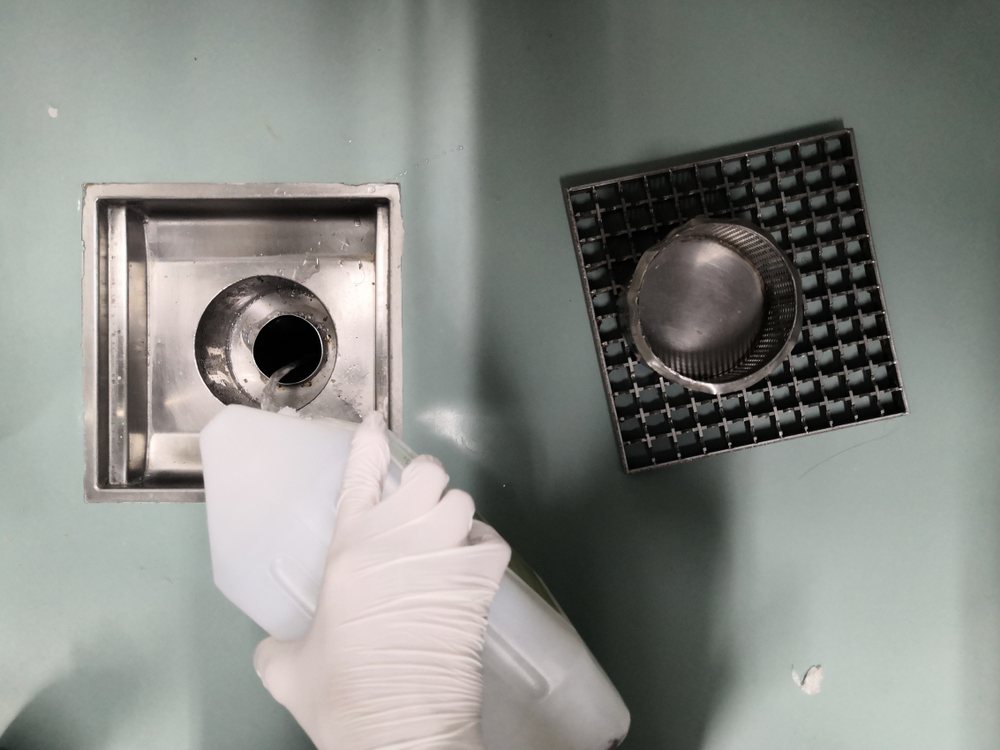
source: pinterest.com
Chemical drain cleaners are often used as a solution for breaking down and dissolving various debris, causing slow-draining pipes. These products (i.e., Drano) contain potent chemicals that effectively target the buildup within your plumbing system and are relatively easy to use.
Though chemical drain cleaners may appear to be a quick fix to your clogged pipes, they come with several drawbacks. Frequent use of these chemicals can eventually lead to damage within your pipes, and they’re also quite harmful to the environment, so use them sparingly.
Enzymatic Drain Cleaners
Enzymatic drain cleaners provide an eco-friendly alternative to chemical solutions for slow-draining pipes. These products consist of enzymes and bacteria that target organic material within your plumbing system, breaking it down safely and gradually over time.
While enzymatic drain cleaners are gentler on your pipes and the environment, they work at a slower pace compared to chemical cleaners. With that said, this option is well-suited for those seeking a sustainable choice without risking pipe damage or negative impacts on the planet.
Zip Tools With Baking Soda/Vinegar
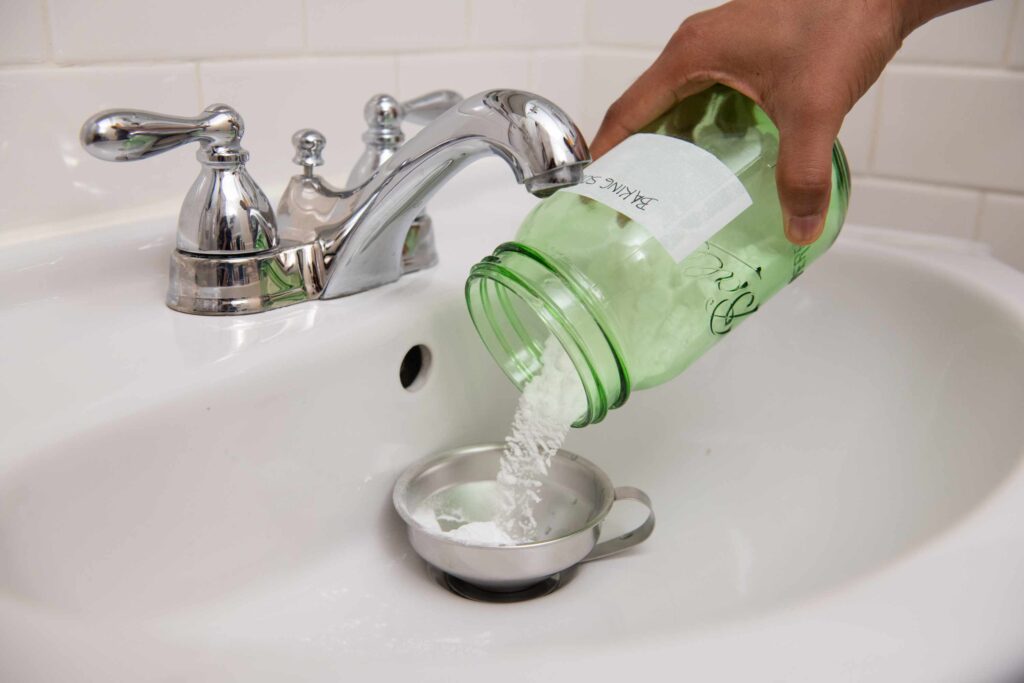
source: pinterest.com
Zip tools with baking soda and vinegar offer a unique, natural solution for slow-draining pipes. A zip tool is an inexpensive, flexible equipment piece that you can insert into your drainage system to dislodge clogs physically. While this can dislodge some hair, it may not be enough.
Couple the zip tool’s mechanical unclogging with a concoction of baking soda and vinegar, and you have an effective method for dealing with clogged pipes. This approach not only helps in clearing blockages but helps you maintain clean pipes without hurting the environment.
Pipe Replacement or Repair
In cases where persistent clogs and slow-draining pipes remain unresolved despite numerous efforts, pipe replacement or repair may be the most suitable solution. Depending on the extent of the issue, this could entail replacing a small section of piping or upgrading the whole system.
While pipe replacement or repair can be an effective long-term remedy for drainage problems, especially in the event of a system collapse, keep in mind that it often comes at a significant expense. It also requires professional assistance to ensure proper installation and results.
In Conclusion…
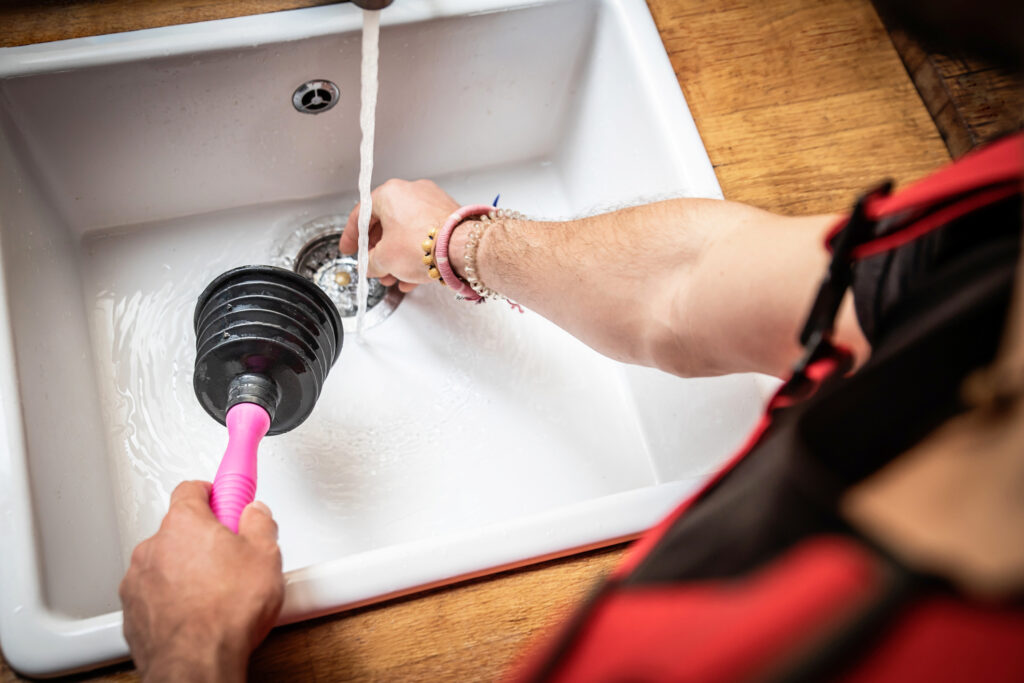
source: pinterest.com
Now that you’ve explored various options for dealing with slow-draining pipes, it’s time to make an informed decision and take action. Whether it’s trying a DIY method or hiring professionals, your newfound understanding of each solution will help you choose the most suitable option.
So don’t let slow drains dampen your spirits or disrupt your daily life. Tap into the knowledge shared in this guide and reclaim a well-functioning, hassle-free plumbing system at home.

